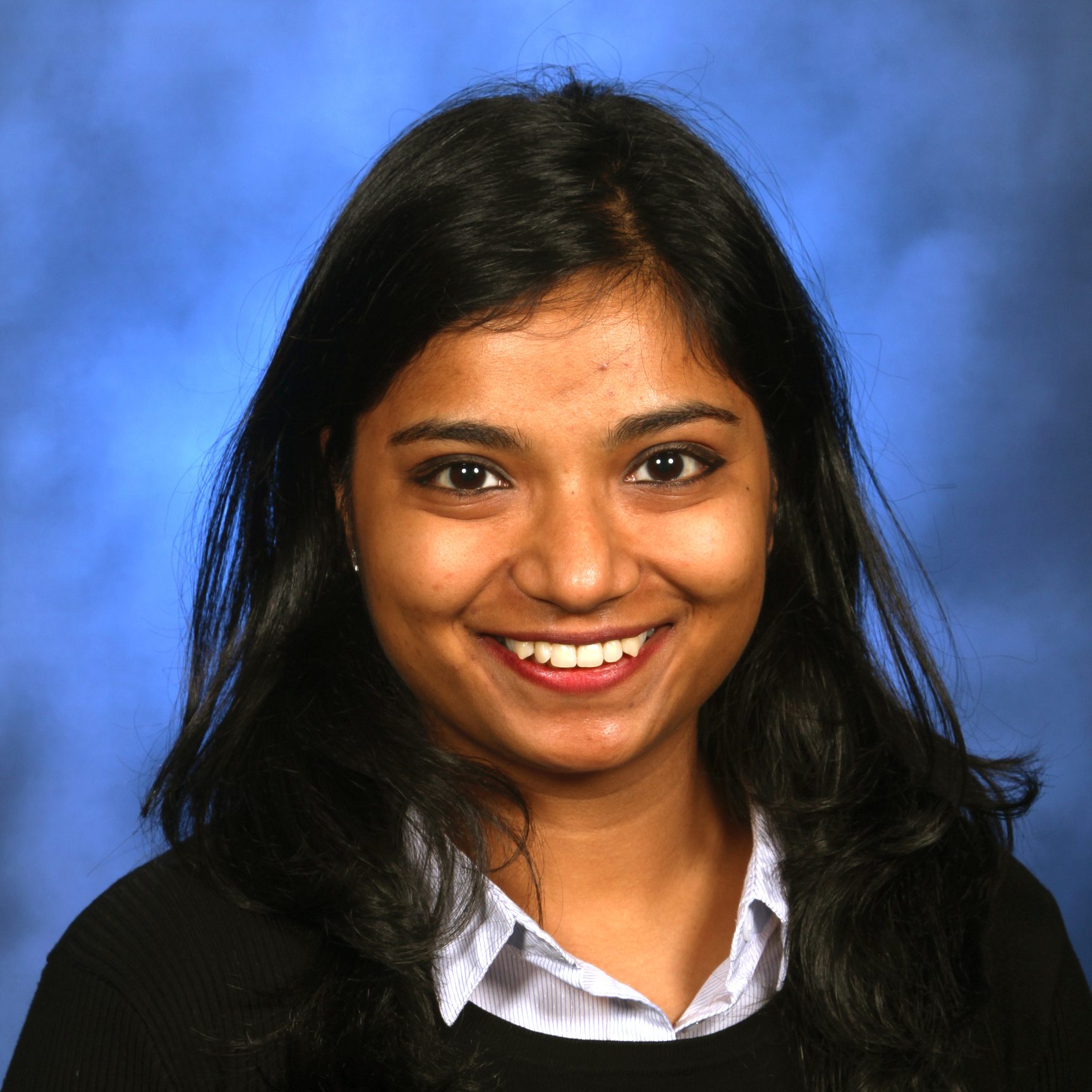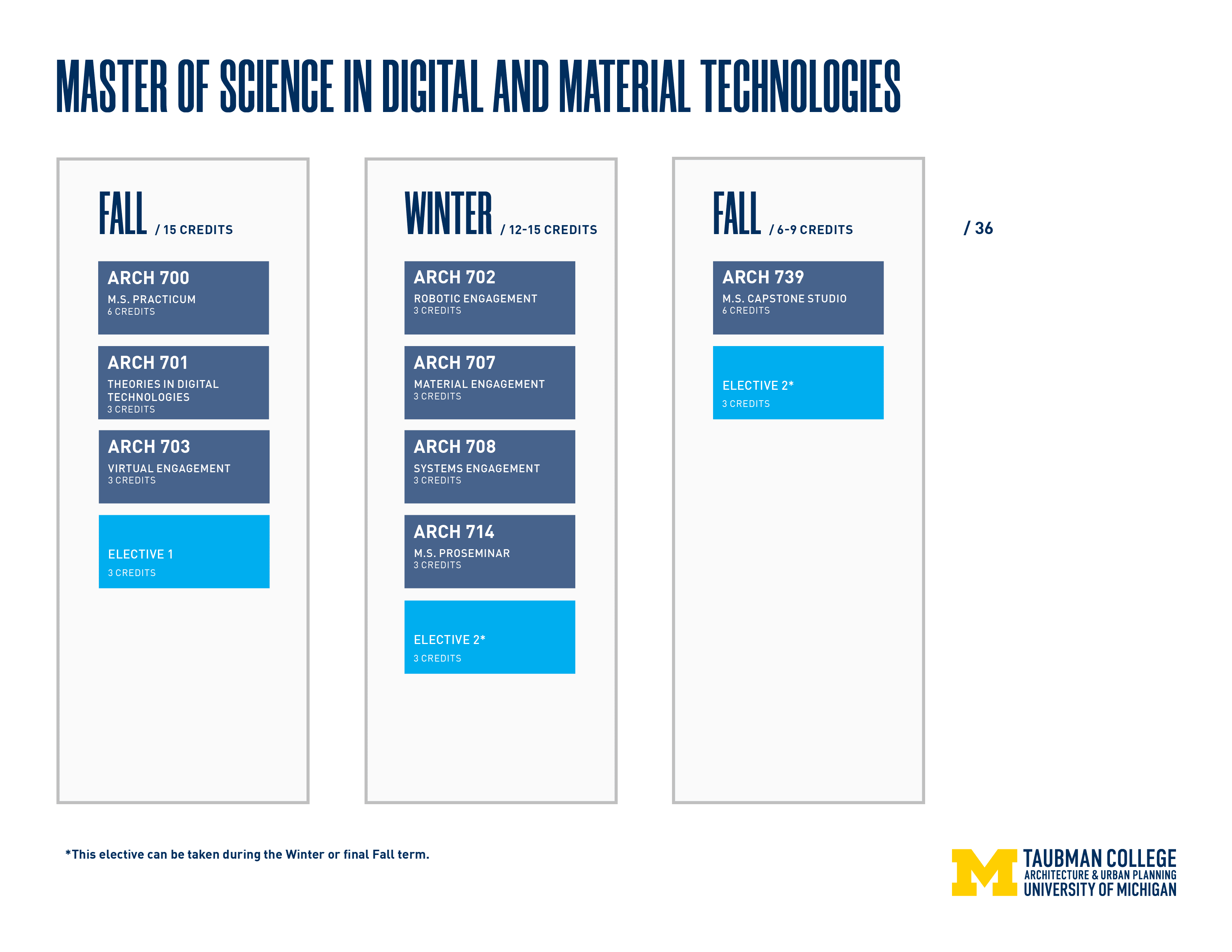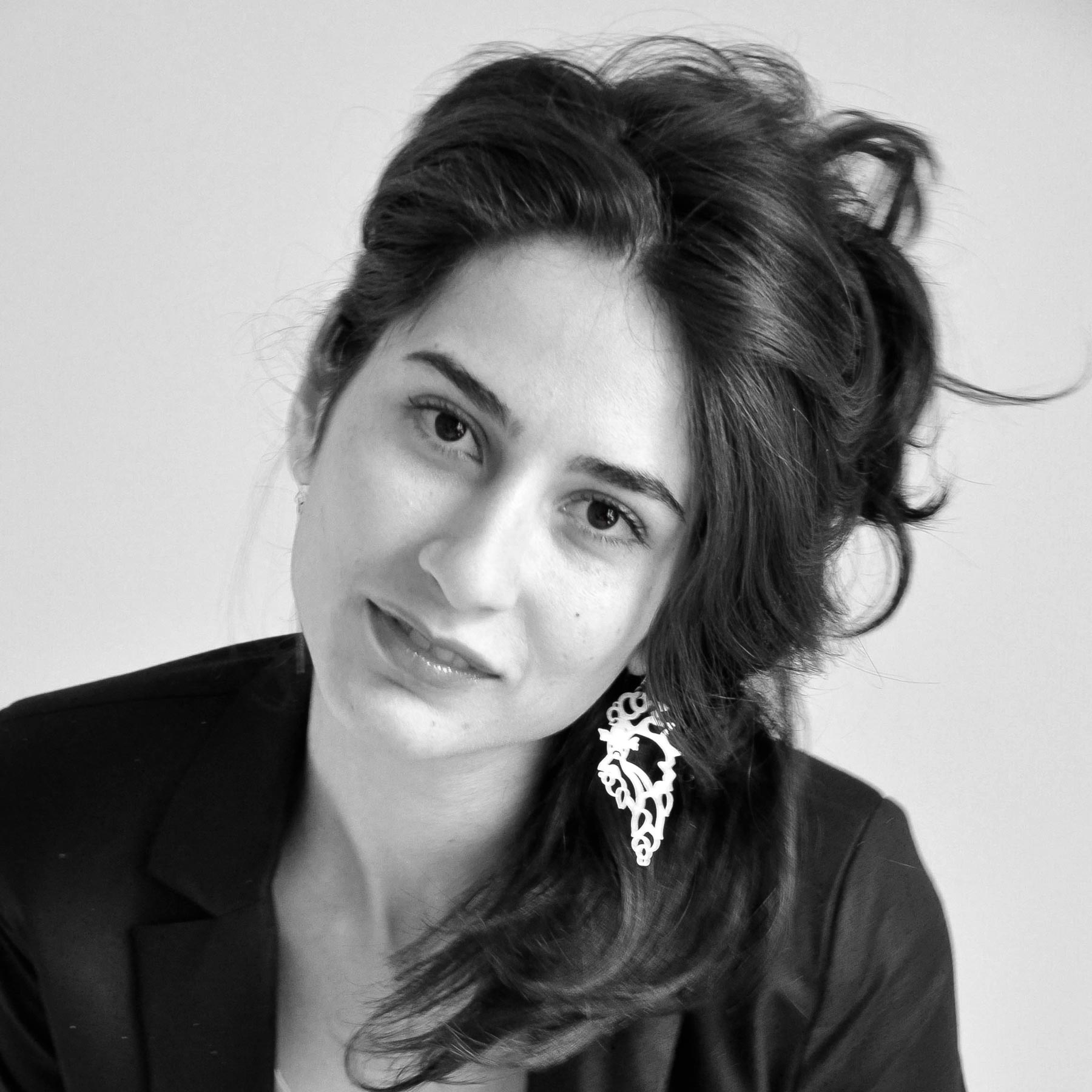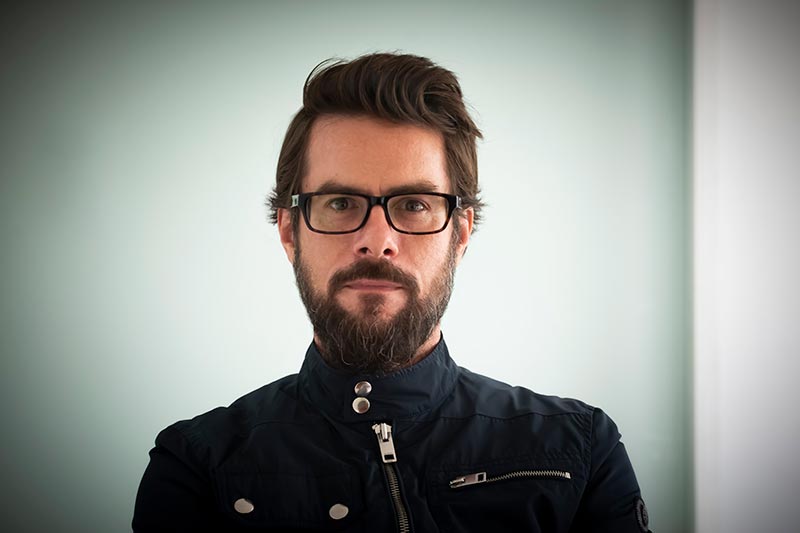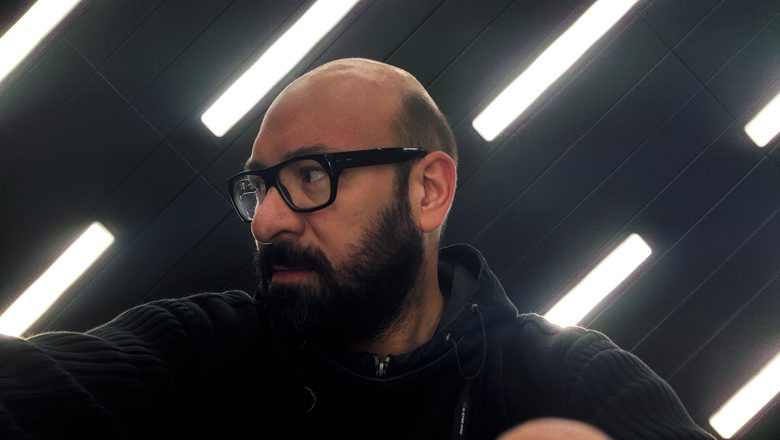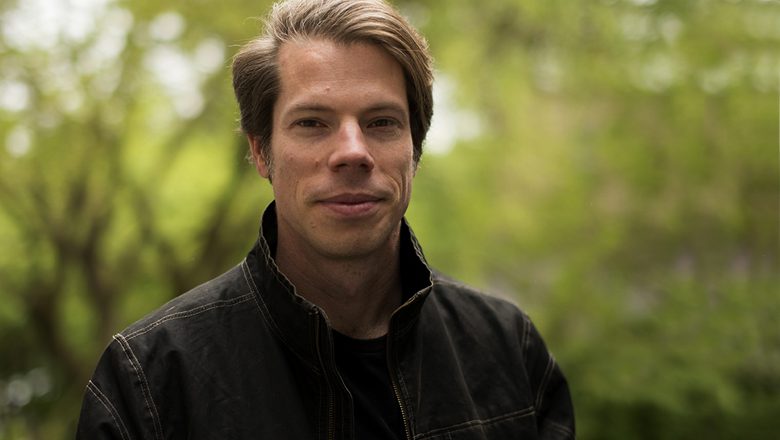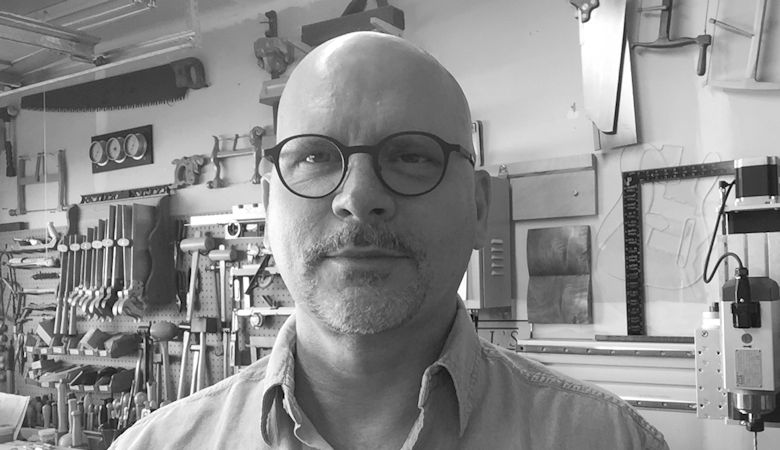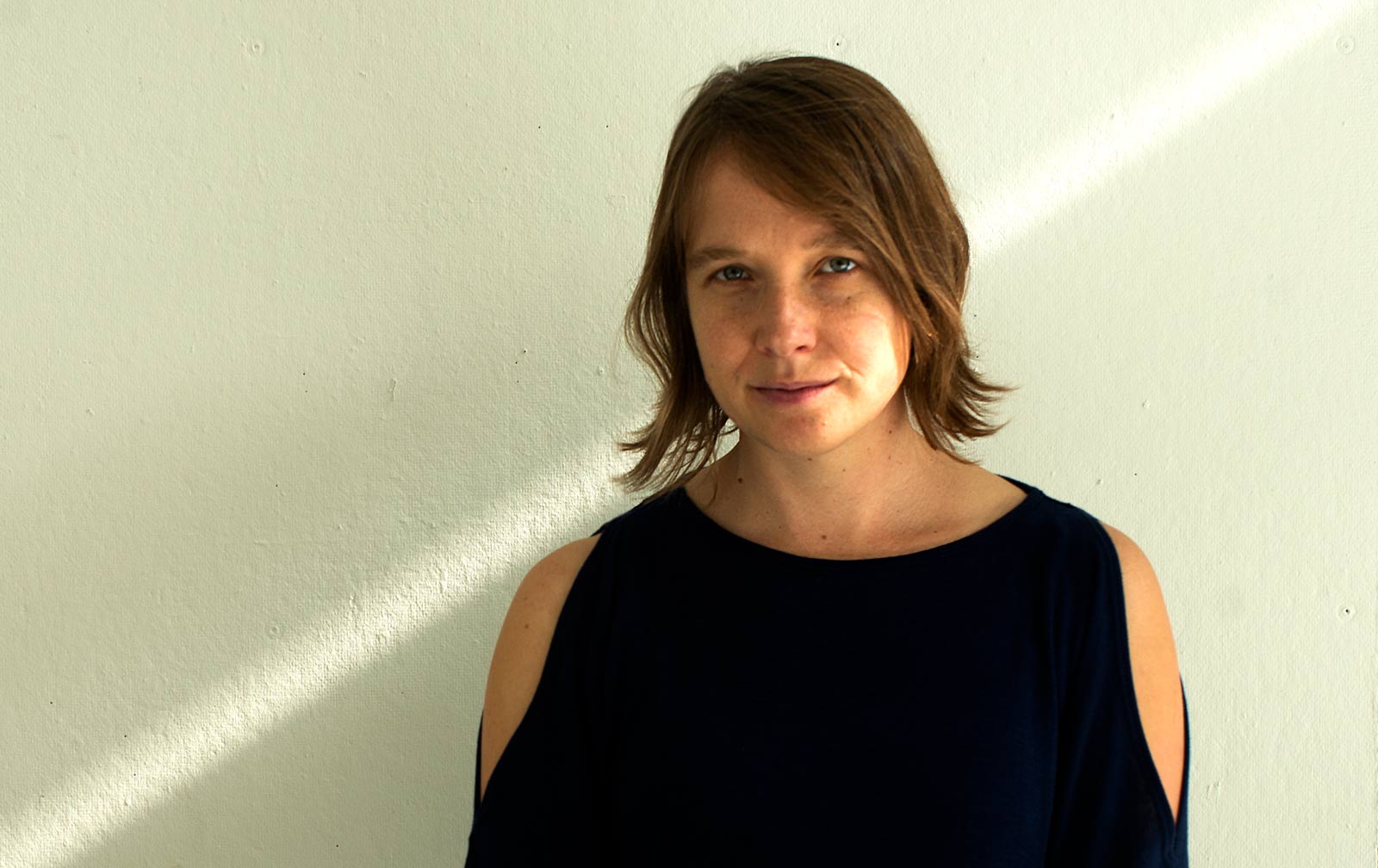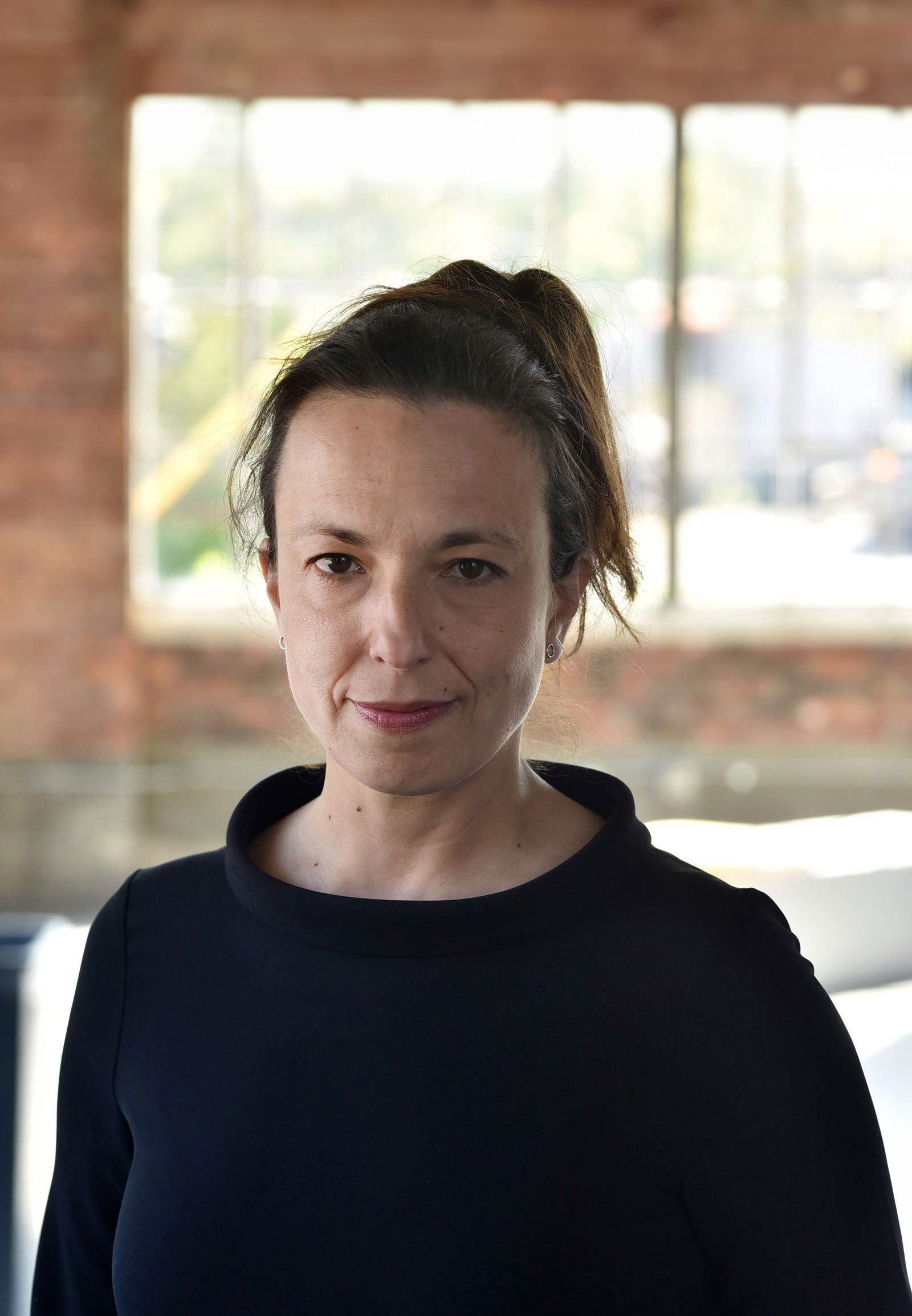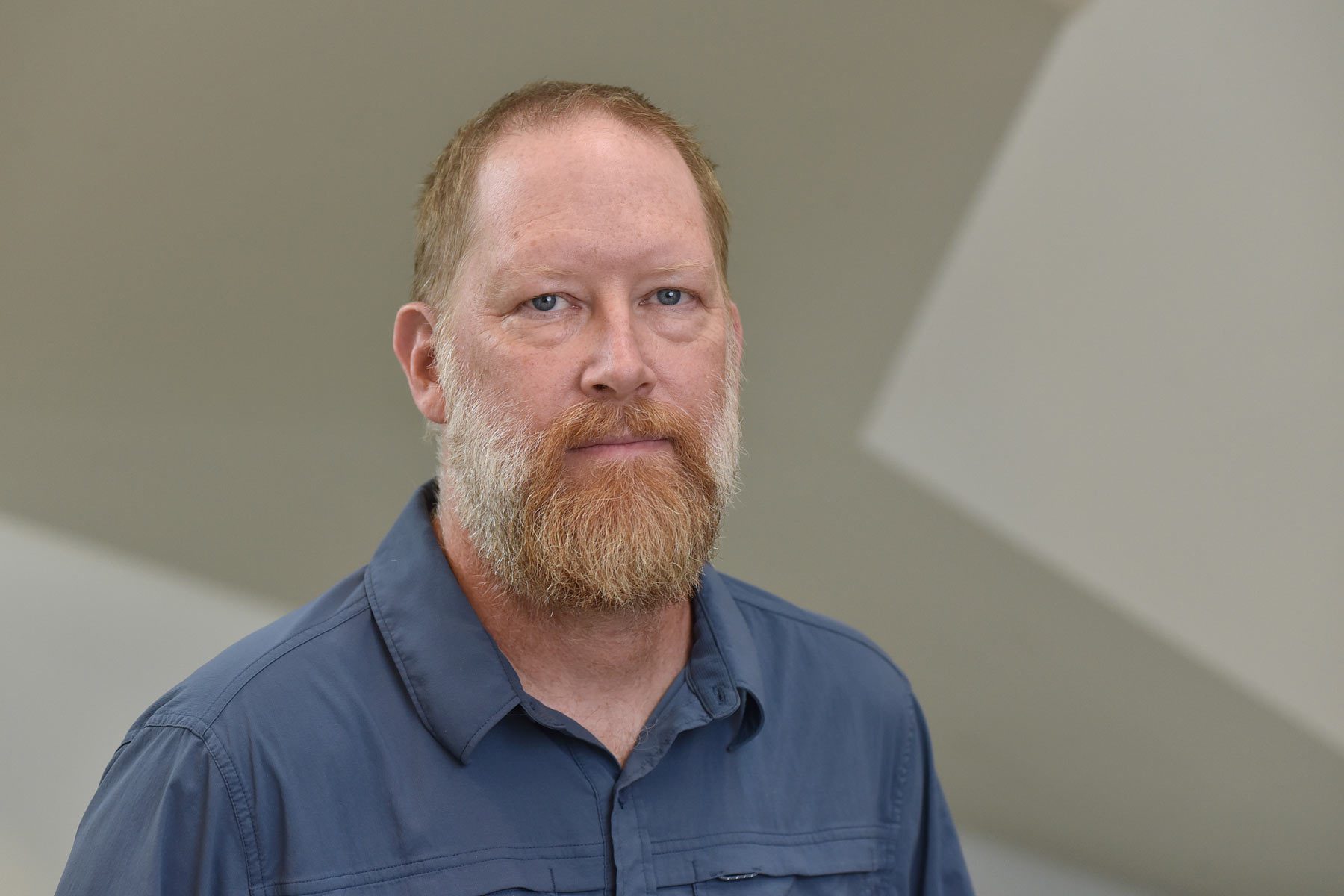Master of Science in Architecture Design and Research
Application and Portfolio Deadline:
January 15 annually
Enrollment Deposit and Intent to Enroll Deadline:
April 15 annually
About
The Master of Science in Architecture Design and Research (M.S.) is an advanced, post-professional degree featuring a concentration in Digital and Material Technologies. The degree is offered by Taubman College and the U-M Rackham Graduate School. The digital and material technologies concentration within the Master of Science in Architecture Design and Research recognizes the multiplicity and changing nature of future roles open to the architect and designer. Whatever the exact nature of these roles might be, the program is designed to prepare you to perceive the ordered relationship of people and their environment and to translate this order into design for the enrichment of human experience.
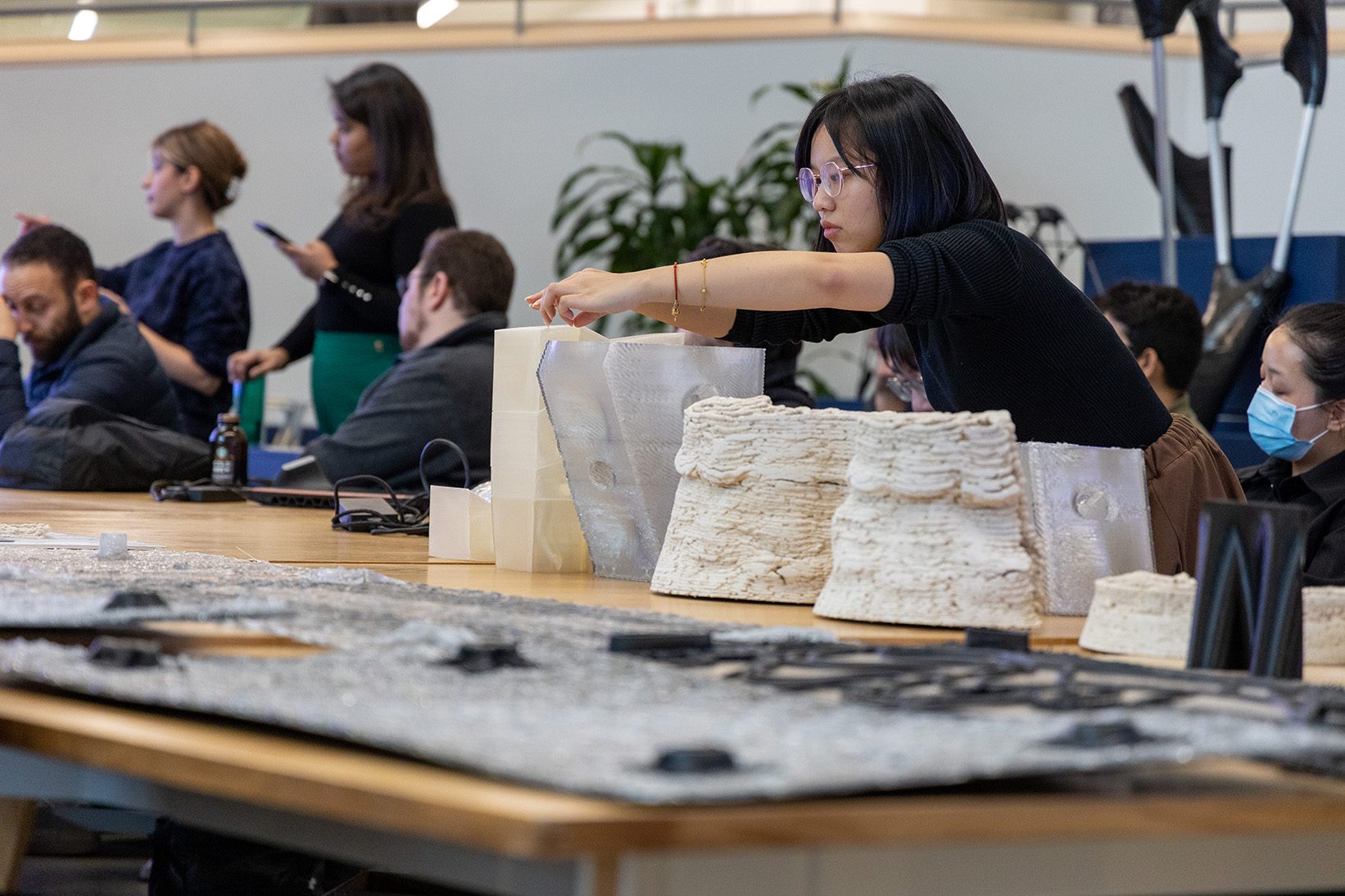
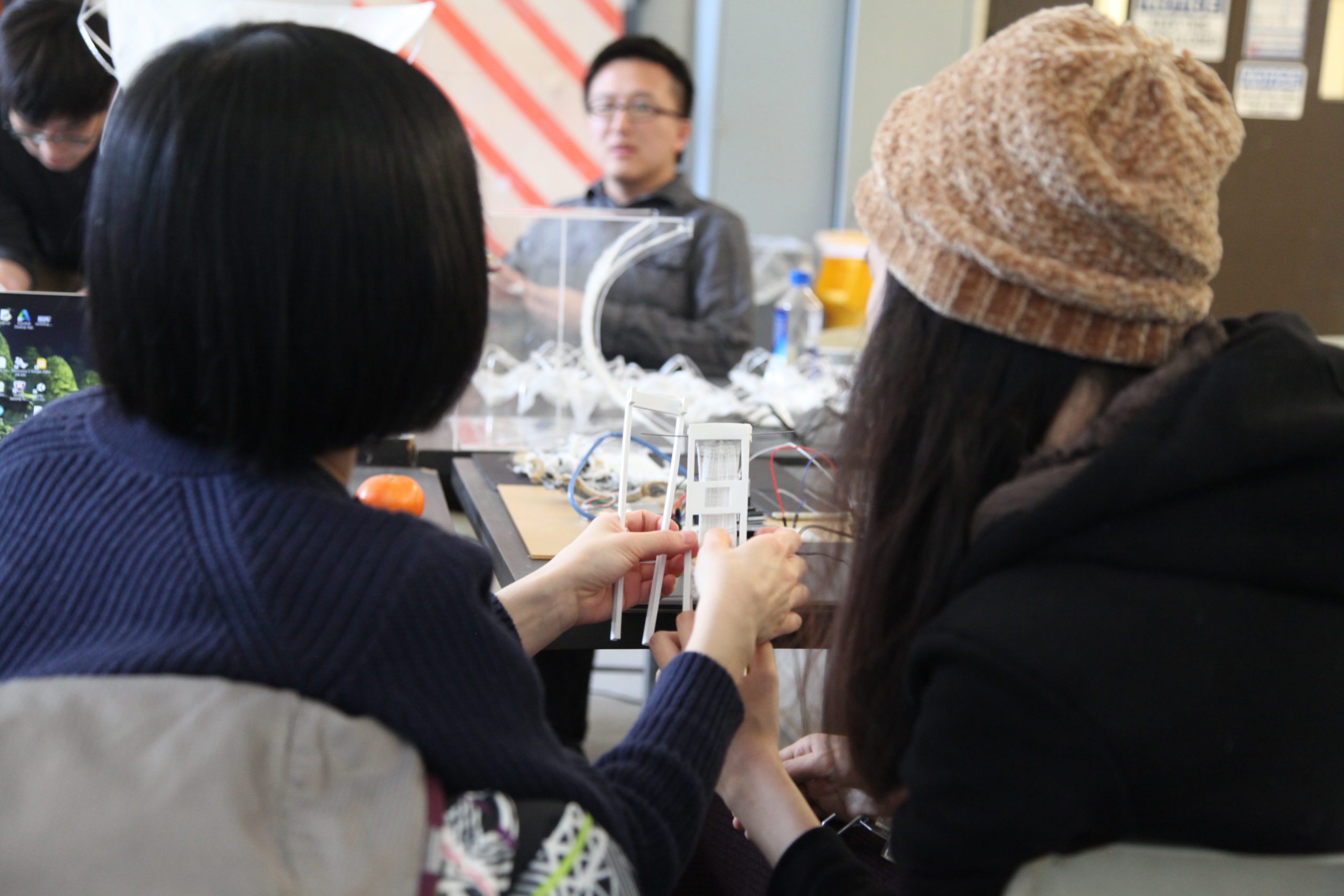
Premier Research Facility
The M.S. in Architecture Design and Research capitalizes on the University of Michigan’s unique position as a premier research university with over 95 top-five-ranked departments. The University’s scope and breadth across various architecture-related disciplines is integral to the course of study in all concentrations.
Our program is particularly appropriate for graduates with a B.Arch. or M.Arch. professional degrees in architecture (or equivalent degrees in related fields). The M.S. provides an additional credential that enables its graduates to pursue research and entrepreneurial practices, careers in the academy, or to expand their architectural practice.
Digital and Material Technologies
The Master of Science in Architecture concentration of Digital and Material Technologies is an intensive 3-term degree that invests in the technologies, materials, and production logics that are most drastically shaping and challenging our built world and its respective industries.
As architecture integrates advanced technologies and material applications from the aerospace, automotive, and shipbuilding industries, it has altered both the way buildings are conceived and manufactured. Computer-aided design/manufacturing technologies and an insistence on the cohesive material systems have forced architects to reconsider their role in response to an influx of complex performance requirements, changing contractual relationships, and multidisciplinary collaborations. Master of Science in Architecture concentration of Digital and Material Technologies (DMT) not only allows for hands-on direct engagement with technology and materials but challenges students to explore different design theories and methodologies poised to have disruptive effects on future work in the field.

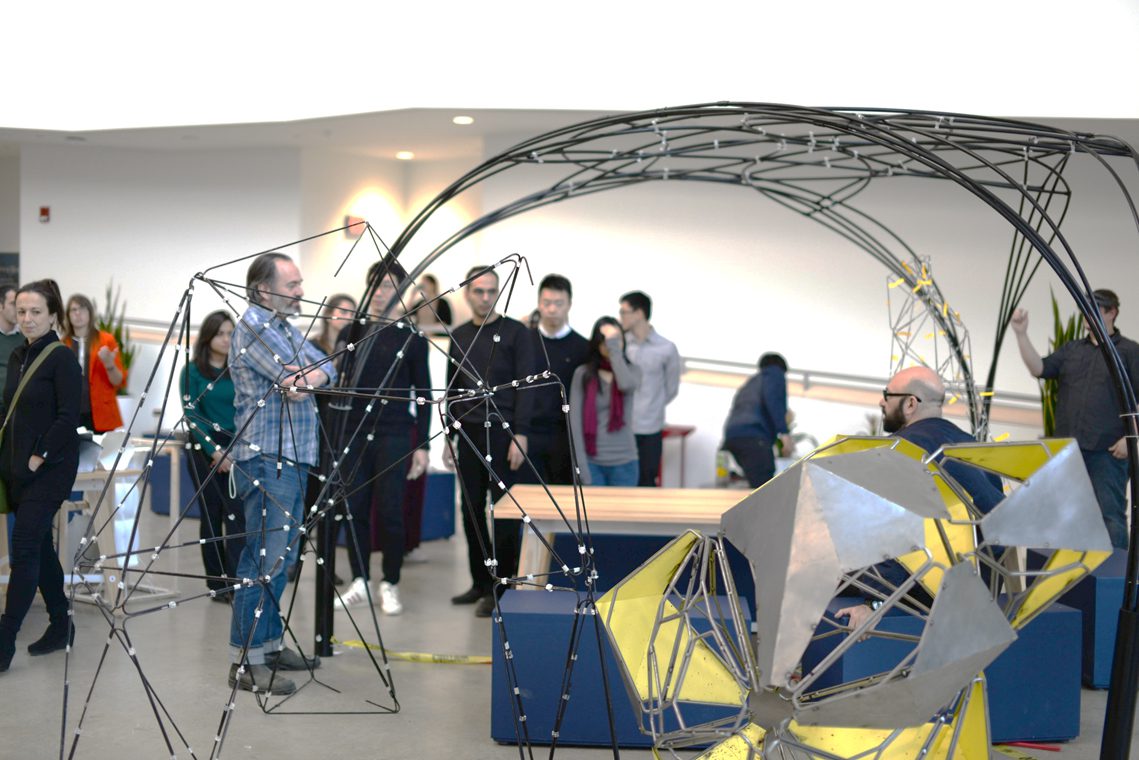
Collapsing digital technologies and material systems into a cohesive framework of study, Digital and Material Technologies concentration focuses on cutting-edge research in advanced fabrication techniques, digital design and material systems. The interactions of matter and energies in a design practice is driven at all stages of design and production by complex constraints and feedbacks from manufacturing, environment and human interaction. The program focuses on the relationship to digital and material design and output, providing motivated students with an opportunity to pursue architectural innovation within a context where design, composition and modes of production for scales from wearables to buildings have radically changed due to an increasing sophistication and pervasiveness of computationally driven design and fabrication technologies.
The D.M.T project-based research led by innovative faculty in the college’s world-class Digital Fabrication Lab (FABLab) provides a powerful platform for motivated students to explore novel construction approaches of designed objects at various scales. Candidates work in small collaborative teams with faculty at Taubman College and across campus in departments such as Material Science, Engineering, Computer Science, Interaction, Art & Design and the Center for Sustainable Systems. Taubman College and the University of Michigan possess unique resources, such as the Taubman College FABLab, the Duderstadt Center with Motion Capture Lab and Immersive Virtual Environment, the Environmental and Water Resources Engineering Lab, and the Engineering Research Center for Wireless Integrated MicroSystems. The Southeast Michigan region positions candidates in close proximity to some of the most advanced manufacturing facilities worldwide.
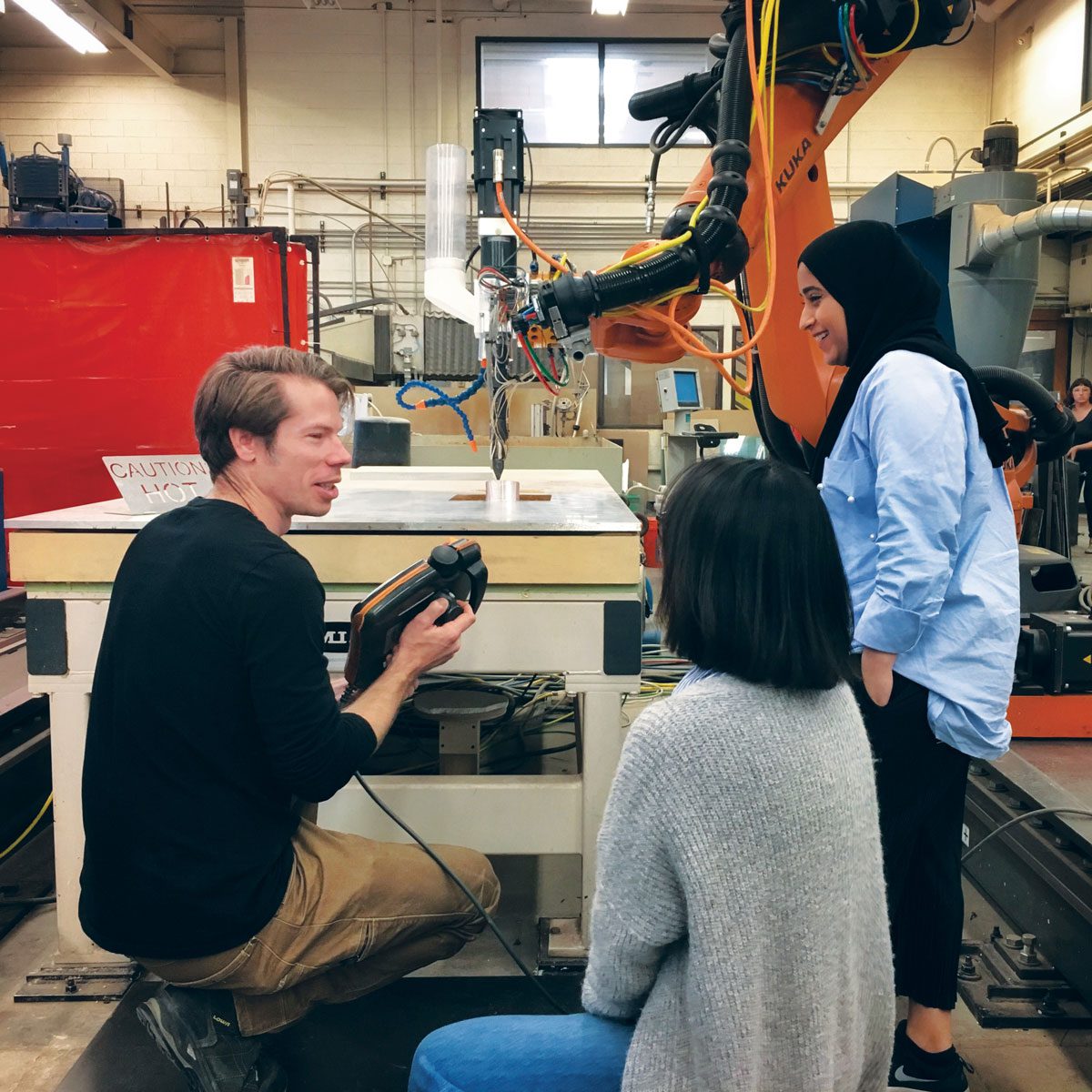
/ Degree Requirements
The Master of Science in Architecture Design and Research Degree with a concentration in Design and Material Technologies requires 36 credit hours. The program is three terms in length consisting of fall term (September-December), winter full term (January-April), and fall full term (September-December).
Specifically, a student must complete:
ARCH 700: MS Practicum (6 credits)
ARCH 714: MS Proseminar (3 credits)
ARCH 701: Theories in Digital and Material Technologies (3 credits)
ARCH 702: Robotic Engagement (3 credits)
ARCH 703: Virtual Engagement (3 credits)
ARCH 707: Material Engagement (3 credits)
ARCH 708: Systems Engagement (3 credits)
ARCH 739: MS Capstone (6 credits)
Two courses (6 credits) of graduate-level architecture elective courses (500/600)
Please see the sample schedule for the typical terms of these course offerings.
/ Sample Schedule
The Master of Science in Architecture concentration of Digital and Material Technologies is an intensive 3-term degree that invests in the technologies, materials, and production logics that are most drastically shaping and challenging our built world and its respective industries.
/ Course Descriptions
ARCH 700: MS Practicum
(6 credits) The course is designed as an intensive skill-building design laboratory that launches the program with digital, material, and machine-based learning. Participants work individually and collaboratively.
ARCH 714: MS Proseminar
(3 credits) This course engages interdisciplinary work, projects and scholarship related to the MS areas of concentration (Digital and Materials Technologies, and Design and Health) – through lectures, class discussion, and guest lectures including experts in the MS concentration areas from Taubman College and the University of Michigan.
ARCH 701: Theories in Digital and Material Technologies
(3 credits) The course will introduce topics and precedents as a means of giving insight to research methods related to digital and material technologies. Participants should complete the course with an understanding of crafting a research proposal and positing their propositions within a broader field of architectural design/research.
ARCH 702: Robotic Engagement
(3 credits) This course covers topics related to hardware, fabrication, and materials as related to advancements in digital fabrication. Beyond teaching the mechanics of specific machinery, the course will develop a framework for understanding exemplary projects in the field with an understanding of different design methodologies and their relations to project development and fabrication.
ARCH 703: Virtual Engagement
(3 credits) This seminar covers topics related to digital design practices that cover a range of topics that include generative design, algorithmic design, scripting, parametric modeling, BIM, simulation, and analysis. Beyond the introduction to specific software packages, the course will develop a framework for understanding exemplary projects in the field with an understanding of different design methodologies and their relation to geometry and workflow.
ARCH 707: Material Engagement
(3 credits) This technique-based course covers topics related to material properties, behavior, performance, tooling, and manufacturing techniques. The course will focus, in part, on physical explorations in working processes related to the development of material assemblies, assessment of their behavior and effects, and their potential applications.
ARCH 708: Systems Engagement
(3 credits) This technique-based course covers topics related to technology integration within high-performance material system. Specific areas of study will include smart materials, integration with sensing and actuation technologies, interactive systems and environmental response. Work of the course will be combine both material explorations as well as digital simulations.
ARCH 739: MS Capstone
(6 credits) This course is the culmination of the academic course of study. Participants are expected to apply new skills and knowledge towards advancing the discipline through their projects. Intensive and research-based, participants will be required to document their research and project-based work in partial fulfillment of their degree. Outside expert discussion is integrated into the MS Capstone and public exhibitions by participants.
Electives
The requirement to fulfill up to three elective courses provides students with the opportunity to learn topics beyond the DMT curriculum and engage with faculty from across the entirety of Taubman College, as well as in other departments at the university. (6 credit hours are required, up to 9 credit hours – depending on the balance of core seminars taken)
ELI 530
Students who are non–native English speakers and do not have a four-year degree from an English-medium institution are required to take and successfully complete ELI 530, a two-credit hour architecture-specific English course offered by the English Language Institute (ELI) at U-M in their first fall term. ELI 530 is taken in addition to their regular architecture coursework and does not count toward degree requirements.
/ Faculty Associated with the Concentration
/ Paying for your Degree
Making decisions about the next step in your educational journey is a time full of opportunity and potential; however, it may also be accompanied by concerns regarding paying for your degree. There are numerous financial resources to help you manage tuition and living expenses.
/ STEM Designated Degree Program
The Master of Science in Architecture Design and Research degree is an approved field of study within the U.S. government’s official STEM fields list. When a student earns a degree in a field on the STEM fields list, he/she may be eligible for the 24-month Optional Practical Training (OPT) extension. OPT is defined as practical work experience in your field of study after completion of a degree. With a STEM degree, a student’s “regular” OPT of 12 months may be extended for an additional 24 months. For further details regarding STEM extensions contact the International Center.
/ Gradient
Gradient is an online platform for current conversations in architecture and urbanism at Taubman College and beyond. The journal highlights the wide variety of expertise and methods and diverse ways of designing and theorizing the built environment’s role in the world. Project Papers further spotlight the intellectual diversity of our internationally recognized faculty.
/ Frequently Asked Questions
What is the Rackham Graduate School?
The Rackham Graduate School and Taubman College work as a team to manage the application review process. As an applicant you will be interacting with both offices.
How do I know if I am eligible to apply to the M.S-DMT degree?
Applicants to the MS degree, should already possess one (or more) of the following degrees:
- 5-year Bachelor of Architecture, Bachelor of Landscape Architecture, and Bachelor of Urban Planning
- Master of Architecture, Master of Landscape Architecture, Master of Urban Planning, or their international equivalent.
Do I need to submit GRE scores?
No. Effective for 2022 applicants and beyond, Graduate Record Examination (GRE) scores are no longer required nor considered for admission to all graduate programs, including the Master of Urban Design, at Taubman College.
Where do I submit my portfolio?
The portfolio is required and is submitted through the ApplyWeb online admission application.
What should I include in my portfolio?
View the portfolio content guidelines.
Do I need an official transcript to apply?
Yes. The Rackham Graduate School requires applicants to upload a scanned copy, front and back, of their official transcript/academic record issued by the Registrar or Records Office to the applicant, to ApplyWeb for each bachelor’s, master’s, professional, or doctoral degree earned or in progress.
Is there an interview process?
Yes. As part of the competitive process of admission evaluation, the Admissions Committee will conduct personal interviews with each applicant. Interviews are arranged after the deadline and applications have been reviewed.
My English proficiency score doesn’t meet the minimum requirement, can I still apply?
Yes, you can still apply. However, Taubman College doesn’t provide conditional admission. We encourage you to retake the test until you receive the minimum score.
How long is the M.S-DMT degree?
The M.S. degree requires 36 academic credits. The degree is 3 terms in length consisting of a fall full term (September–December), winter full term (January–April), and fall full term (September-December).
How much does the M.S-DMT degree cost?
You can find a breakdown of the estimated cost of attendance here.
What types of financial resources are available to me?
There are several different opportunities available to students including Taubman College merit-based scholarships, Taubman College need based grants, federal financial aid awards, and more. To learn more about financial aid and scholarships please visit: https://taubmancollege.umich.edu/admissions/pay-for-your-degree/master-of-science-in-architecture-design-and-research/
How do I check the status of my application?
Applicants can verify application data and status online approximately 10–15 days after their application is submitted. The admissions office will send an email to each applicant that includes the University of Michigan Identification Number (UMID). You will need to use a login ID and password to confirm some personal data before viewing your application status. Student Service staff will try to keep all materials received current. However, please allow sufficient time for processing before contacting the office. See the Apply page application status and evaluation section.
When will I receive my admission decision?
Applicants will be notified of their admission decision by late-February or early March. If you are admitted, you will be able to see that you have been recommended for admission via the online Wolverine Access web application status portal. Decision letters are sent via email. Any merit scholarship award decisions made by the Architecture Program will be noted in the letter of admission.
Are there any resources available for International Students with questions related to the visa application, health insurance or Life in Ann Arbor?
Yes. The Website of the International Center at the University of Michigan offers helpful resources for incoming international students related to topics such as Immigration and Visas, Health Insurance and Housing or Local Transportation.
When do I need to enter my decision?
April 15th. Students choosing to accept admission to the Master of Science must pay a $500 enrollment deposit. Payment may be completed online by e-check through Wolverine Access, credit card, or in the form of a check or money order (in US dollars) made payable to University of Michigan. This deposit reserves your space in the program. The $500 payment will be credited to your student account and applied toward your tuition.
Where can I find more information regarding the University’s COVID-19 vaccination requirements, safety and prevention efforts and testing programs?
Please refer to https://campusblueprint.umich.edu/ for latest news on the coronavirus situation on campus and the COVID-19 policies currently in place for students and faculty.
Career
Taubman College Career and Professional Development offers a variety of programs, services and resources to assist students and alumni in exploring careers, securing positions and continuing skill development and management.
For additional information on career opportunities, visit our career and professional development page.
